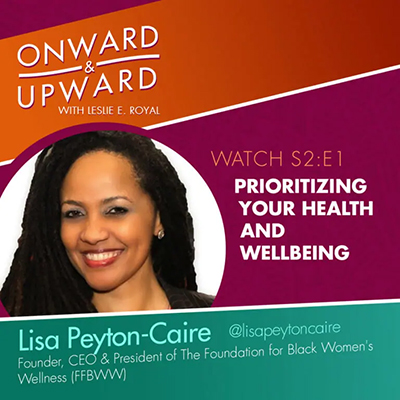High Blood Pressure in Pregnancy: Chronic vs. Gestational Hypertension Why the Difference Matters
- Gestational Hypertension
- Chronic Hypertension
- What Is the Difference Between Chronic Hypertension and Gestational Hypertension?
- Can Hypertension Affect My Pregnancy?
- How Can Hypertension Affect My Baby?
- Will I Be Monitored Differently if I Have High Blood Pressure?
- Do I Need to Treat My High Blood Pressure With Medications?
Key takeaways:
- Hypertension affects many pregnant women, particularly those with pre-existing health conditions.
- Gestational hypertension occurs after the 20th week of pregnancy and resolves within 12 weeks of delivery. In contrast, chronic hypertension occurs before 20 weeks of pregnancy and may not resolve within 12 weeks post-delivery.
- Due to the risks associated with hypertension during pregnancy, your doctor will monitor you more frequently and may prescribe blood pressure medication to help treat the condition.
Gestational Hypertension
Gestational hypertension (GH) is the most common cause of hypertension (high blood pressure) during pregnancy. It occurs in 6–17% of healthy women during their first pregnancies and 2–4% of women during subsequent pregnancies. It is more common if you have any of the following:
- a history of preeclampsia in a previous pregnancy
- multiple pregnancies (for example, twins or triplets)
- are overweight
Gestational hypertension occurs when your high blood pressure develops after 20 weeks of pregnancy, and then blood pressure levels return to normal in the postpartum period.
Chronic Hypertension
Chronic hypertension (CH) occurs when you have high blood pressure before the 20th week of pregnancy. It is present in up to 5% of pregnant women. Hypertension is defined as mild to moderate when blood pressure reaches 140/90 or greater and severe when it reaches 160/105 or higher. About 90% of women with chronic hypertension have essential hypertension (no known cause). The remaining 10% have elevated blood pressure due to medical conditions like kidney or thyroid disease (hyperthyroidism).
What Is the Difference Between Chronic Hypertension and Gestational Hypertension?
Suppose you develop high blood pressure during pregnancy. In that case, your diagnosis of either chronic hypertension or gestational (pregnancy-associated) hypertension will largely depend on when blood pressure elevation occurs in your pregnancy. Most recent guidelines define hypertension diagnosed before the 20th week of pregnancy (about five months) as chronic hypertension. In contrast, gestational hypertension occurs after the 20th week of pregnancy. In addition, high blood pressure diagnosed for the first-time during pregnancy and does not resolve by 12 weeks after delivery can also be classified as chronic hypertension.
It is helpful to differentiate between chronic and gestational hypertension because they have different complication risks both during and after pregnancy. If you have chronic hypertension, you have a 10-40% risk of developing preeclampsia. This risk increases if you have had high blood pressure for a long time or severe hypertension. You can also have a three times higher chance of delivering your baby early (preterm delivery) and newborn complications.
Most women with gestational hypertension have smaller increases in blood pressure, although their risk of developing preeclampsia varies from 15–50%. When GH progresses to preeclampsia, the risk for preterm birth rises four to fivefold. The risk of intrauterine growth restriction also doubles.
Chronic Hypertension vs Gestational Hypertension
| Chronic Hypertension | Gestational Hypertension | |
| Develops | At 20 weeks or earlier in pregnancy. | After 20 weeks of pregnancy. |
| Resolves | Ongoing (Chronic) | 6-12 weeks after giving birth. |
| Incidence (Frequency of Diagnosis) | 5% of pregnant women. | 6-17% of pregnant women. |
| Treatment | Lifestyle/Medication/Increased Monitoring. | Lifestyle/Medication/Increased Monitoring. |
| Risks to Baby | IUGR, Preterm Delivery, Stillbirth, Placental Abruption, Birth Defects. | IUGR, Preterm Delivery, Stillbirth, Placental Abruption. |
| Timing of Delivery | No later than 37 weeks gestation (3 weeks before your due date). Sooner if severe. | No later than 37 weeks gestation (3 weeks before your due date). Sooner if severe. |
Can Hypertension Affect My Pregnancy?
When you are pregnant, your body makes more blood to support your baby’s growth. If your blood pressure increases, your heart has to work harder to deliver oxygen to your tissues. As a result, your heart may no longer pump efficiently enough to keep up with your body’s demands.
This can lead to your internal organs not getting enough oxygen, thus causing fatigue, breathing problems, and general weakness. As a result, you risk developing heart or kidney disease. When this condition is severe, it is called heart failure.
High blood pressure can also cause a blood vessel in the brain to become blocked or even burst, causing a stroke.
High blood pressure during pregnancy also increases your risk of:
- gestational diabetes
- preeclampsia
- preterm birth
- tearing of the placenta
- postpartum hemorrhage
- cesarean birth
Although gestational hypertension usually goes away after childbirth, it may increase the risk of developing high blood pressure in the future. Eating healthy, maintaining a healthy weight, and exercising regularly may help you avoid developing high blood pressure as you age.
How Can Hypertension Affect My Baby?
High blood pressure may reduce blood flow to the placenta. This can make it difficult for the baby to get enough nutrients and oxygen to grow. This can cause intrauterine growth restriction (IUGR). A baby with IUGR will be smaller in size and can have problems with their blood sugars and body temperature. Suppose you have high blood pressure during pregnancy. In that case, you are more likely to give birth earlier than expected due to increased risks of pregnancy complications such as preeclampsia and placental abruption.
If your condition remains stable, your doctor will recommend scheduling your delivery three weeks before your due date (about 37 of pregnancy). Earlier delivery may be necessary if you or the baby develop complications. Your doctor will discuss inducing labor or scheduling a c-section.
Will I Be Monitored Differently if I Have High Blood Pressure?
If you have hypertension during pregnancy, you will be monitored more frequently for signs of preeclampsia to ensure your blood pressure is not too high. In some cases, your doctor may recommend home BP monitoring. You can also expect to have ultrasounds more often to ensure your baby grows well. If growth problems are suspected, you may have other tests that monitor the baby’s health. This testing usually begins in the third trimester (24 weeks or 6 months) of pregnancy.
Do I Need to Treat My High Blood Pressure With Medications?
Treatment depends on whether your high blood pressure is mild or severe. Some pregnancy-related changes in the first and second trimesters can lead to a decrease in blood pressure, often as early as seven weeks. If your hypertension has been mild and stays low due to these changes, you may not need to take medication. You may even be able to reduce or stop taking your existing blood pressure medicines during pregnancy.
If you have severe hypertension or have health problems related to it, you may need to start medicine if not already on one. Your existing medication dosage may also need to be adjusted during pregnancy. Your provider may also talk with you about taking low-dose aspirin during your second and third trimesters to decrease the risk of preeclampsia. You should only start aspirin therapy after a discussion with your doctor.
Written by: Lisa Shephard, MD | Editor: Megan Cawley and Dayna Smith MD | Reviewed December 14, 2022 | Copyright myObMD. Media, LLC, 2023
References
- High blood pressure (hypertension) during pregnancy. Cleveland Clinic. (n.d.). Retrieved October 14, 2022, from https://my.clevelandclinic.org/health/diseases/4497-high-blood-pressure-hypertension-during-pregnancy.
- American College of Obstetricians and Gynecologists. Committee Opinion No. 743 Low dose aspirin use during pregnancy. July 2018.
- American College of Obstetricians and Gynecologists. Committee on Practice Bulletins—Obstetrics No. 222 Gestational Hypertension and Preeclampsia June 2020.
- TERWISSCHA VAN SCHELTINGA J, KRABBENDAM I, SPAANDERMAN M. Differentiating between gestational and chronic hypertension; an explorative study. Acta Obstetricia et Gynecologica Scandinavica. 2012 Nordic Federation of Societies of Obstetrics and Gynecology 92: 312–317.
- Terwisscha van Scheltinga J A, Krabbendam I, Spaanderman ME. Differentiating between gestational and chronic hypertension; an explorative study. Acta Obstet Gynecol Scand 2013;92:312–7.
- American College of Obstetricians and Gynecologists. ACOG Practice Bulletin No. 125: Chronic hypertension in pregnancy. Obstet Gynecol. 2012;119(2 Pt 1):396–407.
- 8. Sibai BM. Chronic hypertension in pregnancy. Obstet Gynecol. 2002;100:369–77.
- Abalos E, Duley L, Steyn DW, Henderson-Smart DJ. Antihypertensive drug therapy for mild to moderate hypertension during pregnancy. Cochrane Database Syst Rev. 2007;1:CD002252.
- Differentiating between gestational and chronic hypertension; an explorative study JOSIEN A. TERWISSCHA VAN SCHELTINGA, INEKE KRABBENDAM & MARC E.A. SPAANDERMAN Acta Obstetricia et Gynecologica Scandinavica ª 2012 Nordic Federation of Societies of Obstetrics and Gynecology 92 (2013) 312–317 DOI: 10.1111/aogs.12061.
- Terwisscha van Scheltinga JA, Krabbendam I, Spaanderman ME. Differentiating between gestational and chronic hypertension; an explorative study. Acta Obstet Gynecol Scand. 2013 Mar;92(3):312-7. doi: 10.1111/aogs.12061. Epub 2013 Jan 21. PMID: 23237537.


